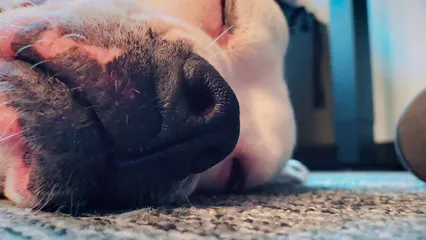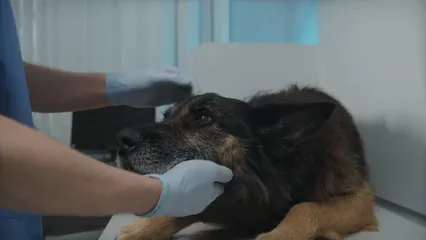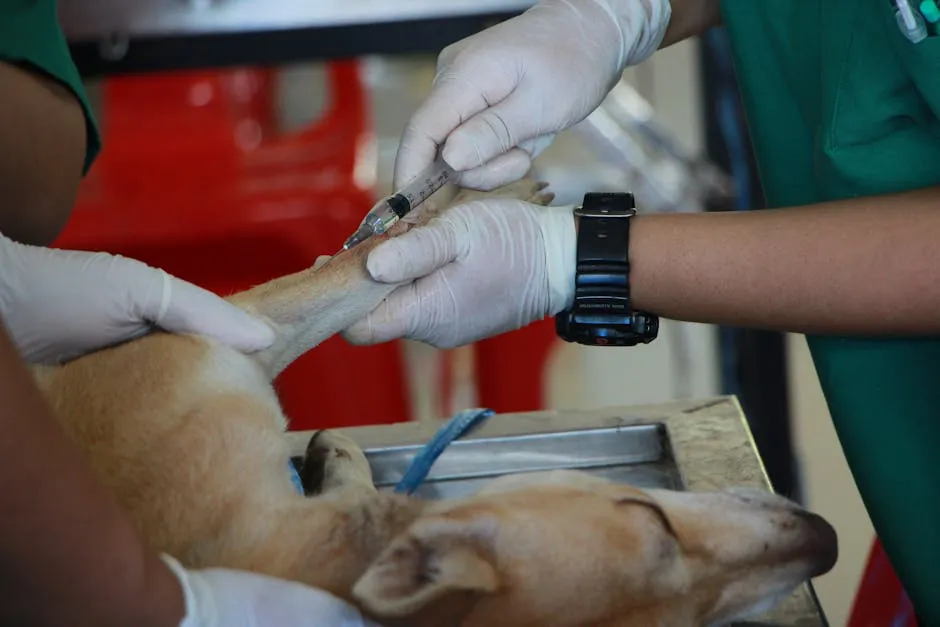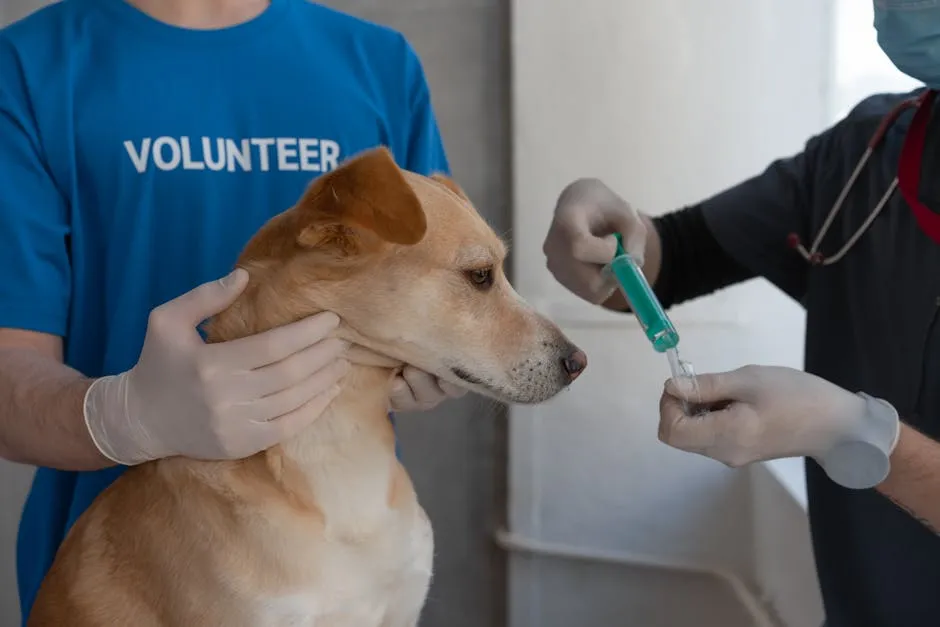
Why Do Dogs Snore? Understanding the Causes and Solutions
Why Do Dogs Snore? Understanding the Causes and Solutions
Introduction
Have you ever been jolted awake by your dog’s snoring? It’s a common occurrence among our furry friends. While snoring is usually harmless, it can sometimes point to health issues. Understanding the reasons behind your dog’s snoring can help you decide when to seek veterinary advice.
And speaking of solutions, if your dog is a heavy snorer, you might want to check out a Dog Snoring Relief Collar. It’s designed to help alleviate snoring by gently promoting better sleeping positions. Because let’s be honest, a well-rested pup makes for a happier household!
Summary and Overview
This article highlights the common causes of dog snoring. Factors like breed, anatomy, weight, and health conditions play significant roles. For instance, brachycephalic breeds, such as Pugs and Bulldogs, often snore due to their unique facial structures. Obesity can also lead to restricted airways, causing snoring. In addition, allergies and respiratory issues can contribute to nasal congestion, further exacerbating the problem. Understanding these causes helps pet owners determine when a vet visit is necessary. The article will also provide actionable tips for managing and reducing snoring.

To keep your home air fresh and help your snoring pup breathe easier, consider investing in a Pet Air Purifier. It’s a great addition to your home, especially if your furry friend has allergies!
Common Causes of Dog Snoring
Anatomy of the Dog: Brachycephalic Breeds
Certain breeds are more prone to snoring due to their physical characteristics. Brachycephalic breeds, like Pugs and Bulldogs, have short snouts. This anatomy leads to airway obstruction, making it harder for them to breathe. When these dogs sleep, relaxed tissues can vibrate, producing snoring sounds.

Weight and Obesity
Excess weight significantly contributes to dog snoring. Overweight dogs have additional fat around their necks, which can restrict airflow. According to recent studies, nearly 60% of dogs in the U.S. are overweight or obese. Maintaining a healthy weight is crucial for your dog’s overall well-being and can help reduce snoring.
This is where Dog Weight Management Treats come into play! These delicious treats can help your dog shed those extra pounds while still feeling like a champ. Your pooch will love them, and you’ll love the peace of mind!
Sleeping Position
Did you know that your dog’s sleeping position can affect their snoring? Dogs that sleep on their backs are more likely to snore. When lying on their backs, the tongue can fall back, blocking the airway. Encouraging your dog to sleep on their side may help minimize snoring.

Allergies and Respiratory Issues
Allergies can lead to snoring in dogs, just like in humans. Seasonal or environmental allergens can cause nasal congestion, making it difficult for dogs to breathe. Respiratory infections can also inflame the airways, contributing to snoring. If you notice persistent nasal congestion, a vet visit may be in order.
Foreign Objects and Dental Problems
Sometimes, snoring can be a sign of foreign objects lodged in your dog’s nasal passages. Additionally, dental problems, such as abscessed teeth, can cause inflammation that leads to snoring. Regular dental check-ups are essential to prevent these issues and ensure your dog’s health.

If your dog has dental issues, consider using Dog Dental Chews. They can help maintain your dog’s dental hygiene while providing a tasty treat. It’s a win-win for both of you!
By understanding these common causes of dog snoring, you can take proactive steps to address the issue and ensure your furry friend remains healthy and comfortable.
When to Be Concerned About Dog Snoring
Signs That Indicate a Problem
Snoring itself isn’t unusual for dogs, but some signs may indicate a serious issue. If your dog suddenly starts snoring, pay close attention. This could be a sign of respiratory distress. Are they experiencing changes in behavior? If they’re lethargic or unwilling to play, it may be time to consult a vet. Other symptoms to watch for include nasal discharge, coughing, or difficulty breathing. These can all signal underlying health concerns that require immediate attention.

Conditions Associated with Snoring
Several medical conditions could cause your dog to snore. One common issue is sleep apnea, where breathing is interrupted during sleep. This condition can lead to restless nights for your furry friend. Hypothyroidism is another potential culprit. This occurs when the thyroid gland doesn’t produce enough hormones, leading to weight gain and snoring. Respiratory infections can also contribute to snoring, as inflammation can narrow airways. If you notice consistent snoring alongside these conditions, veterinary care is essential.
Managing and Reducing Snoring
Home Remedies and Adjustments
There are practical steps you can take at home to reduce your dog’s snoring. First, consider adjusting their sleeping position. Encourage your dog to sleep on its side rather than its back. This can help keep the airway open. Weight management is also crucial. Ensuring your dog maintains a healthy weight can alleviate pressure on the throat, reducing snoring. Additionally, minimize allergens in your home. Regularly cleaning their sleeping area and using air purifiers can help create a more comfortable environment.

For added comfort, consider a Dog Bed with Orthopedic Support. It can provide the right support for your furry friend, ensuring they wake up refreshed and ready to conquer the world (or at least the backyard)!
Veterinary Interventions
If home remedies aren’t effective, it may be time to seek veterinary advice. A vet can evaluate your dog’s snoring and determine if medical intervention is necessary. Treatments may include medication for allergies or infections. In some cases, surgery might be required to correct anatomical issues. Don’t hesitate to reach out to your vet if you have concerns about your dog’s snoring. Taking action early can help protect your pet’s health and improve their quality of life.

The Importance of Regular Check-ups
Routine veterinary care is essential for your dog’s overall health. Regular vet visits help monitor your dog’s well-being and catch any potential health issues early. Just like us, dogs can develop conditions that may lead to snoring. These can include allergies, obesity, or respiratory problems.
While you’re at it, make sure to keep a Dog First Aid Kit handy. Accidents happen, and being prepared can save you and your furry buddy a lot of stress.
During these check-ups, your veterinarian will perform a thorough examination. They can assess your dog’s weight, dental health, and breathing patterns. If your dog is prone to snoring, your vet can provide tailored advice on managing it. This preventive care is crucial for keeping your furry friend healthy and happy.

Don’t wait for symptoms to appear. Establish a routine for veterinary check-ups, ideally once or twice a year, depending on your dog’s age and health status. This proactive approach can help identify issues before they escalate, ensuring your dog remains a vibrant part of your family for years to come. Regular health monitoring is a small effort for such a big reward—your dog’s health and happiness.
Conclusion
In summary, understanding why dogs snore is crucial for every pet owner. While it can often be benign, snoring may also indicate underlying health issues. Regular veterinary check-ups are vital for monitoring your dog’s health and addressing any concerns early on. If you notice changes in your dog’s snoring patterns, don’t hesitate to consult your veterinarian. Awareness is key to maintaining your dog’s well-being, ensuring they continue to bring joy and companionship into your life.
FAQs
Is snoring in dogs normal?
Yes, snoring is often normal in dogs. Many dogs snore occasionally, especially when deeply asleep. However, if your dog suddenly starts snoring or if the snoring becomes loud and disruptive, it may signal an underlying issue. Pay attention to other symptoms like coughing or lethargy. If these appear, a vet visit is wise.
What breeds are most likely to snore?
Certain breeds are more prone to snoring due to their anatomy. Brachycephalic breeds like Pugs, Bulldogs, and Shih Tzus often snore because of their short snouts. Their facial structure can cause breathing difficulties, leading to snoring. Large breeds, such as St. Bernards and Great Danes, can also snore due to their size.
How can I stop my dog from snoring?
To help reduce your dog’s snoring, consider adjusting their sleeping position. Encourage side sleeping instead of back sleeping. Maintaining a healthy weight is crucial, as excess weight can restrict airflow. Additionally, keep allergens at bay by cleaning regularly and using an air purifier. If snoring persists, consult your vet for tailored solutions.
When should I consult a vet about my dog’s snoring?
Consult a vet if your dog’s snoring changes suddenly or is accompanied by other concerning symptoms. Signs like coughing, difficulty breathing, or unusual behavior warrant immediate attention. If your dog snoring disrupts their sleep or yours, a veterinary evaluation can ensure their health and comfort.
Can allergies cause my dog to snore?
Yes, allergies can definitely lead to snoring in dogs. Just like us, dogs can suffer from allergies to pollen, dust, or even certain foods. When a dog’s body reacts to these allergens, it often causes inflammation in the nasal passages. This inflammation results in nasal congestion, making it difficult for your dog to breathe smoothly while sleeping. If your dog is snoring more during specific seasons, allergies could be the culprit. You might also notice other symptoms, like sneezing or watery eyes. To help your furry friend, consider consulting your vet. They may suggest antihistamines or other treatments to alleviate your dog’s discomfort.
Is snoring a sign of sleep apnea in dogs?
Snoring can sometimes indicate sleep apnea in dogs. Sleep apnea occurs when a dog experiences repeated interruptions in their breathing during sleep. This condition may lead to loud snoring and restlessness. If your dog snores loudly and seems to struggle for air, it’s essential to monitor them closely. Other signs of sleep apnea include excessive daytime sleepiness or difficulty waking up. If you suspect your dog has this condition, it’s important to consult a veterinarian. They can evaluate your dog’s breathing patterns and recommend appropriate treatments, which may include lifestyle changes or medical interventions.
How does weight affect dog snoring?
Weight plays a significant role in dog snoring. Overweight dogs often have extra fat deposits around their neck and throat. This excess weight can narrow the airways, making it harder for them to breathe during sleep. Consequently, this can lead to loud snoring or even more severe breathing problems. Maintaining a healthy weight is crucial for your dog’s overall health and can help reduce snoring. Regular exercise and a balanced diet are key components of effective weight management. If you’re concerned about your dog’s weight, consult your veterinarian for a tailored plan. Keeping your dog fit not only helps with snoring but also enhances their quality of life.
Please let us know what you think about our content by leaving a comment down below!
Thank you for reading till here 🙂
And remember, for those long road trips with your furry friend, a Dog Travel Carrier or a Dog Water Fountain can make a world of difference. Keep your dog hydrated and happy on the go!
All images from Pexels




